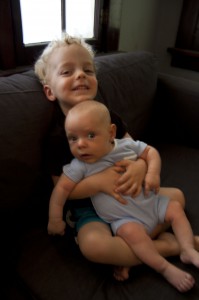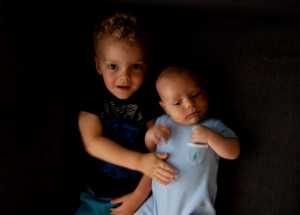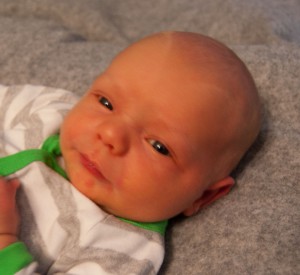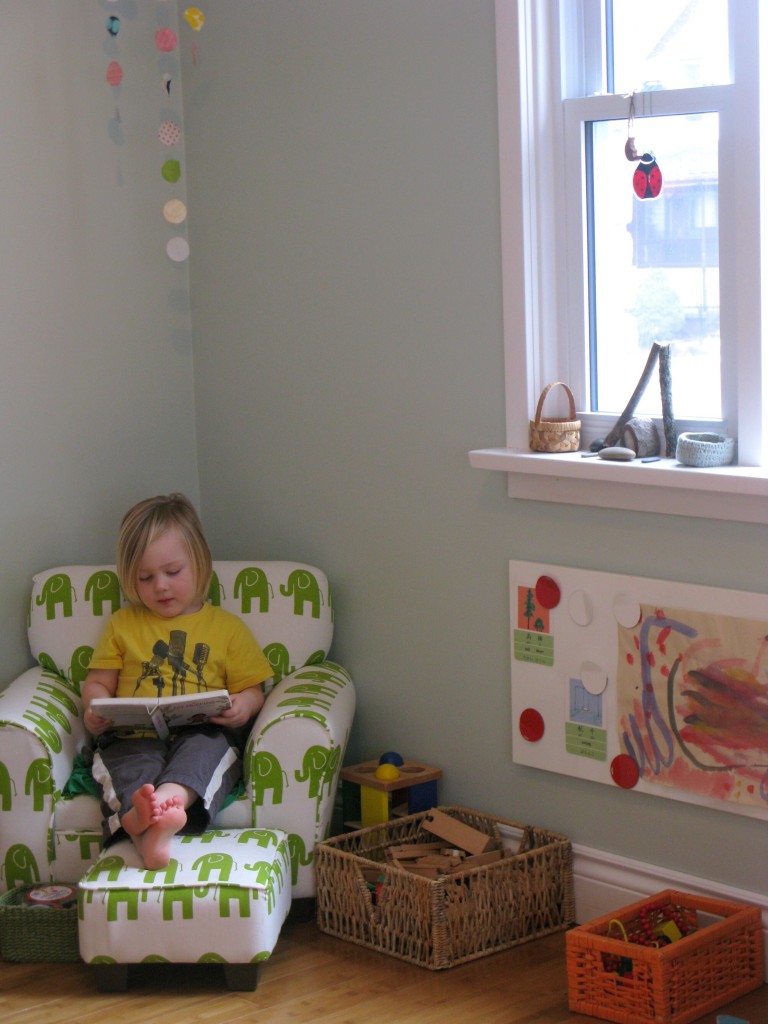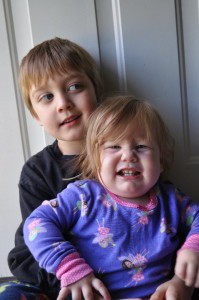Editor’s note: This post was originally published on Aug. 26, 2008, but it contains a sweet reminder for parents expecting a new baby and may be wondering how that will affect their older child.
 There is something so sweet about watching our older children mimic our parenting approach with their younger siblings.
There is something so sweet about watching our older children mimic our parenting approach with their younger siblings.
When our second child was born, our oldest was only 2 years old. While she was very sweet with her new baby brother, she mostly just politely ignored him. I did catch her gently rocking and lifting her shirt to nurse her favorite stuffed duck occasionally.
When our third was born, she was 5 and was definitely more interested but still mostly preferred to “mother” her dolls, carrying them around in doll slings and such, than her real live baby brother.
This last time around, though, when our fourth was born, has been different. At 7, our oldest is interested and physically strong enough to care for her new baby sister. She helps with diaper changes, she confidently hikes baby Julia onto her hip and, just yesterday, asked to wear Julia on her back.
I reflexively said “no,” and then reconsidered. Why not? I would supervise and she had been asking me for several months to try. So she did, and I was tickled.
I guess before I had more than one child, it never occurred to me how much the baby gets from having older siblings. Everyone talks about the benefits to the older child. You are getting a playmate! You’ll be a big sister! But, wow, the baby benefits, too!
I mean, Julia positively glows when her big brothers and sister appear.
We call Julia “the luckiest baby” for having three older siblings. Her every sound and cute little motion is quickly responded to. She has a built-in audience when she notices the fan and starts moving her arm in a circle. Three little voices notice and start to encourage her.
I remember vaguely feeling a bit sorry for my firstborn when our second arrived, imagining the reduced amount of parental attention she would get, that she would somehow be sitting around pining for my attention when my hands would be full with a new baby.
While this was certainly somewhat true for the first few months, once the baby was a bit older, the tables turned a bit and she and her younger brother became inseparable and played together constantly — much more than I would have been able to manage, even with my best effort. I mean, my patience for playing tea and reading toddler books is, shall we say, definitely finite.
Heck, these days I have to fight for my time with my children: They are so self-sufficient with each other. I had completely underestimated this part of a growing family!
How about you? If you have more than one child, what have your experiences been like? Has the reality been what you expected?




